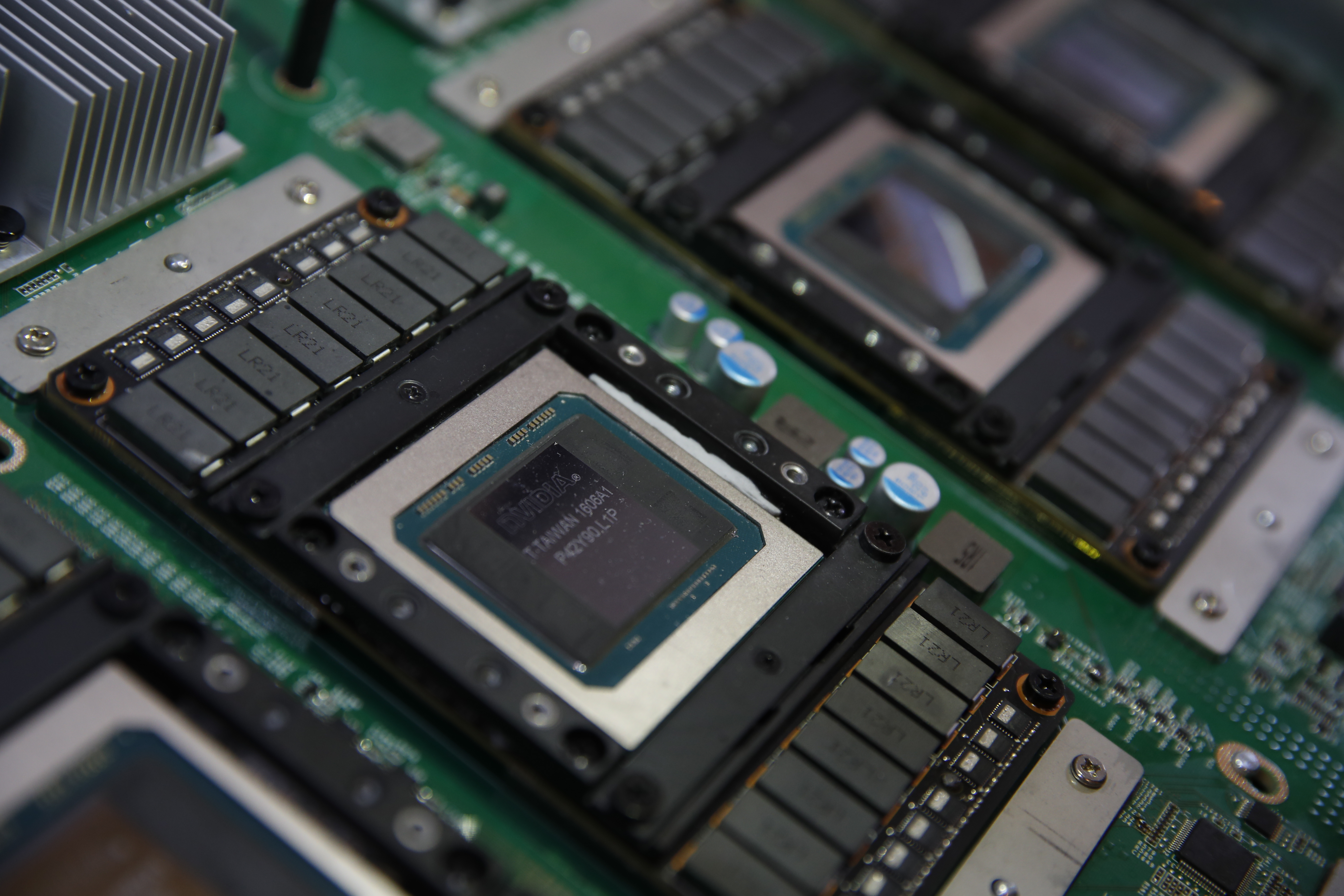Cryptocurrencies are making computers more expensive
The rush on bitcoin and other digital currencies has an unwanted side effect


A free daily email with the biggest news stories of the day – and the best features from TheWeek.com
You are now subscribed
Your newsletter sign-up was successful
Unless you've been hiding under a rock, you've probably noticed the spike in interest in cryptocurrencies. If you need a quick refresher, a cryptocurrency is a kind of decentralized digital or virtual money. It is highly encrypted, so it can't be tracked or traced or stored in your favorite banking institution. You can't put it in your pocket like a dollar bill, and most coffee shops won't accept it as payment, but it still has value. Sometimes, a lot of value. For instance, one of the most popular cryptocurrencies is bitcoin, and one bitcoin is currently worth about $8,500.
The cryptocurrency market is huge. According to Forbes, it is worth about $400 billion right now. But it's also incredibly volatile. Bitcoin, for example, recently lost an excruciating 70 percent of its value. It plummeted from a high of $20,000 to below $6,000, and then slowly inched back up to its current position. Since the start of 2018, the entire cryptocurrency market has lost more than $200 billion.
Despite its volatility, cryptocurrency doesn't seem to be going away, and it could be the root of a new financial system that lives entirely in the virtual world.
The Week
Escape your echo chamber. Get the facts behind the news, plus analysis from multiple perspectives.

Sign up for The Week's Free Newsletters
From our morning news briefing to a weekly Good News Newsletter, get the best of The Week delivered directly to your inbox.
From our morning news briefing to a weekly Good News Newsletter, get the best of The Week delivered directly to your inbox.
But the proliferation of cryptocurrencies has another, lesser-known side effect. If you're a PC gamer who is devoted to playing video games on your computer, the crypto market is affecting you indirectly by creating a run on computer parts, and sending the prices of those parts soaring. To understand why, we have to dig deeper into how cryptocurrencies are made. The simple explanation: They're mined online with computers. The slightly more detailed explanation: People use their computers to solve mathematical problems with software, or "mine" for cryptocurrency, and they get bitcoins or other virtual currencies in exchange for their work. This is where having the right computer parts is very important. When cryptocurrency "miners" realized that graphics cards used by computer-gamers can process information faster, the demand for those graphics processing units (GPUs) skyrocketed, and the problems for gamers began.
What we're currently seeing play out in the computer parts industry is a classic tale of supply and demand. When cryptocurrencies started to rise, and the value of one coin reached thousands of dollars, more people wanted a share of the market. This meant more cryptocurrency miners who needed graphics cards and other expensive computer parts to work, which led to price increases and shortages.
Take a look at Amazon, or another retailer's listed prices for GPUs — if you can find them. Many graphics cards are either temporarily out of stock or sold out entirely. Gaming site Polygon shares that the price of one graphics card, called the Nvidia GeForce GTX 1070, jumped from $380 to $700 in a year. Here's another example: MSI's GeForce GTX 1070 Gaming X is supposed to cost $459.99, but the actual price varies from $919.99 to $988.99. Some crypto miners aren't shy about their conquests: They brag about emptying out store shelves, and show off their loot on Instagram. One miner proudly shared a photo of eight graphics cards they'd just bought, topping $7,000 in value.
How many @asus @asusrog @nvidia GTX 1080Ti does it need to mine #monacoin? As many as you can! In my case, not one. Not two. Not three. But EIGHT cards! $7000 worth of video cards alone! Let’s get them #hashing and mine some #crypto #cryptocurrency! #cryptolife #cryptomining #bitcoin #litecoin #blockchainA post shared by About Us: (@bitcoincouple) on Dec 18, 2017 at 8:03am PST
The average computer user who rarely ventures beyond their email inbox, Google, or Facebook probably won't feel the price crunch, but anyone who relies on graphics cards for hobbies or work certainly will. That includes video editors and graphic designers, who often need fast GPUs for their work. And you don't have to be a pro designer to feel this pain: Some basic Photoshop features require a GPU to work properly.
A free daily email with the biggest news stories of the day – and the best features from TheWeek.com
In a perfect world, there would be enough graphics cards to go around. In reality, some companies are going to extreme lengths to prevent miners from hoarding GPUs. For instance, they're putting caps on orders and prioritizing gamers over miners. And a few are offering gamers special discounts. Micro Center, which sells computer parts, proudly displays its commitment to giving gamers more discounts with prices "well below the market," if they're bundling parts.
For now, gamers and miners will have to keep fighting over GPUs and stalking retailer sites to get their hands on them. Desperate cryptocurrency miners are going after any GPUs they can find, which means neither expensive nor low-end cards are safe. The companies that manufacture the parts can't keep up with demand, and so far, no one has promised to increase supply, so it's likely the rush on GPUs will continue.
But there's one ray of hope for gamers and PC users: The cryptocurrency market is still volatile, with drastic ups and downs, to be predictable or stable. This lack of stability may keep new miners away and give GPU companies a chance to recover and restock. And it may just give gamers a break.
Lana Bandoim is a freelance writer and editor. Her work has appeared on Yahoo! News, CNN iReport, The Huffington Post, Lifescript, Healthline, and many other publications.
